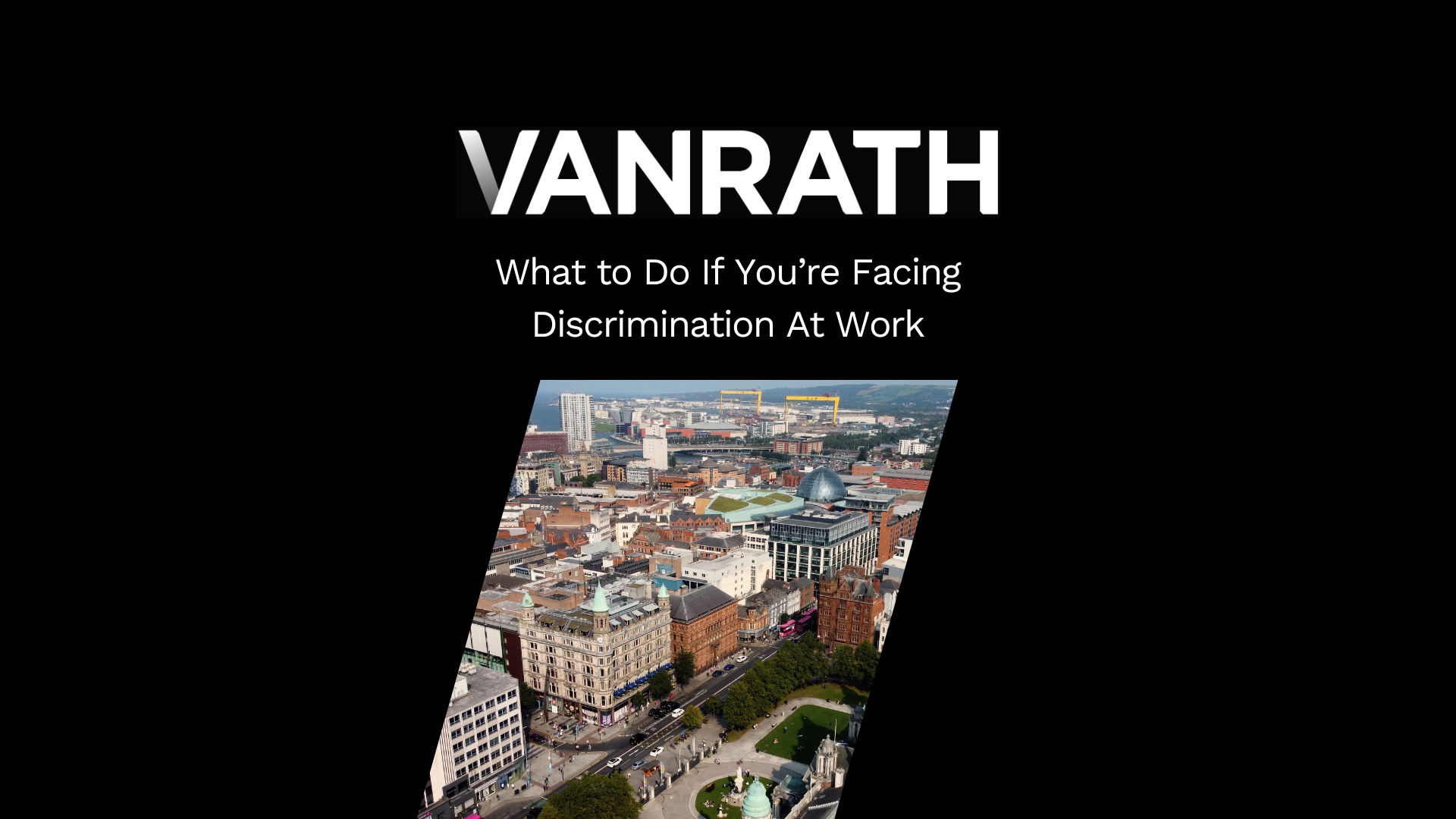*Please note: Some advice in this blog is specific only for those living in Northern Ireland.
Let’s talk about something people still find uncomfortable to talk about — discrimination at work. It’s heavy, it’s uncomfortable, and if you’re on the receiving end of it, it can feel totally isolating.
But you’re not overreacting, you’re not being “too sensitive,” and you’re absolutely within your rights to expect a safe, respectful workplace — regardless of your gender, race, age, religion, disability, sexual orientation, or anything else that makes you you.
This shouldn’t still be happening. But it does — even in 2025, even in places that claim to be “an inclusive team”.
So, if it is happening to you (or someone you know), here’s what to do next.
1. Trust your gut
First off — if something feels off, it probably is. It doesn’t need to be a screaming match or a headline-level scandal for it to count as discrimination. Sometimes it’s subtle. Snide comments. Being passed over for opportunities. Being spoken to differently. Left out. Mocked. Assumed about. It all adds up.
And before you start gaslighting yourself (“maybe I’m imagining it,” “maybe I’m overthinking”), just stop. If something made you feel small, targeted or less-than — that matters.
2. Start writing stuff down
Keep a record. Names, dates, what was said, how it made you feel. Screenshot messages or emails if it’s happening online. This is about protecting yourself. If you decide to raise it later, this log will be your best mate.
Example:
"9 May – Manager made a comment during team meeting about me being ‘too young to understand proper work ethic’. Everyone laughed. Felt humiliated."
You shouldn’t have to build a case, but sadly, sometimes you do.
3. Speak to someone you trust
This might be your line manager (if they’re not part of the problem), HR, a union rep, or even a colleague who’s seen what’s going on. You don’t have to go straight into formal complaints — just saying it out loud to someone else can help you process and plan your next step.
If your workplace has an Employee Assistance Programme (EAP), use it.
(If you're living in Northern Ireland, and not sure where to turn, the Equality Commission for Northern Ireland is a brilliant resource.)
4. Raise it – formally if you have to
If the behaviour continues and informal chats don’t sort it, it might be time to raise a formal grievance. Every company in Northern Ireland should have a grievance procedure (usually found in your staff handbook or intranet). Yes, it’s uncomfortable. But the longer it goes on, the more damaging it becomes — not just to your mental health, but to your future in that role.
5. You are not the problem
Let’s be clear. Standing up for yourself is not the problem. Discrimination is.
We know it’s hard — especially in smaller offices where “rocking the boat” feels risky. But staying silent just protects the people creating the problem, not the ones experiencing it.
A note on Northern Irish workplaces
Northern Ireland's workforce is (slowly) getting better at recognising and addressing discrimination. But we’ve still a way to go. Too many people here brush things off with "ach, it's just banter" or "sure they didn't mean anything by it". That doesn’t cut it anymore.
We need workplaces that make space for everyone — not just the ones who fit a certain mould.
If you’re facing discrimination at work, you are not alone, and you are not powerless. It’s not on you to “put up with it” or “be grand”. You have rights, and you deserve better.
And if you’re reading this thinking, “I don’t know if I can go back into that office tomorrow”? Maybe it’s time for a fresh start. A new team, a new employer — one that respects you for who you are. We can help you find that. No pressure, no judgement — just people who care.
